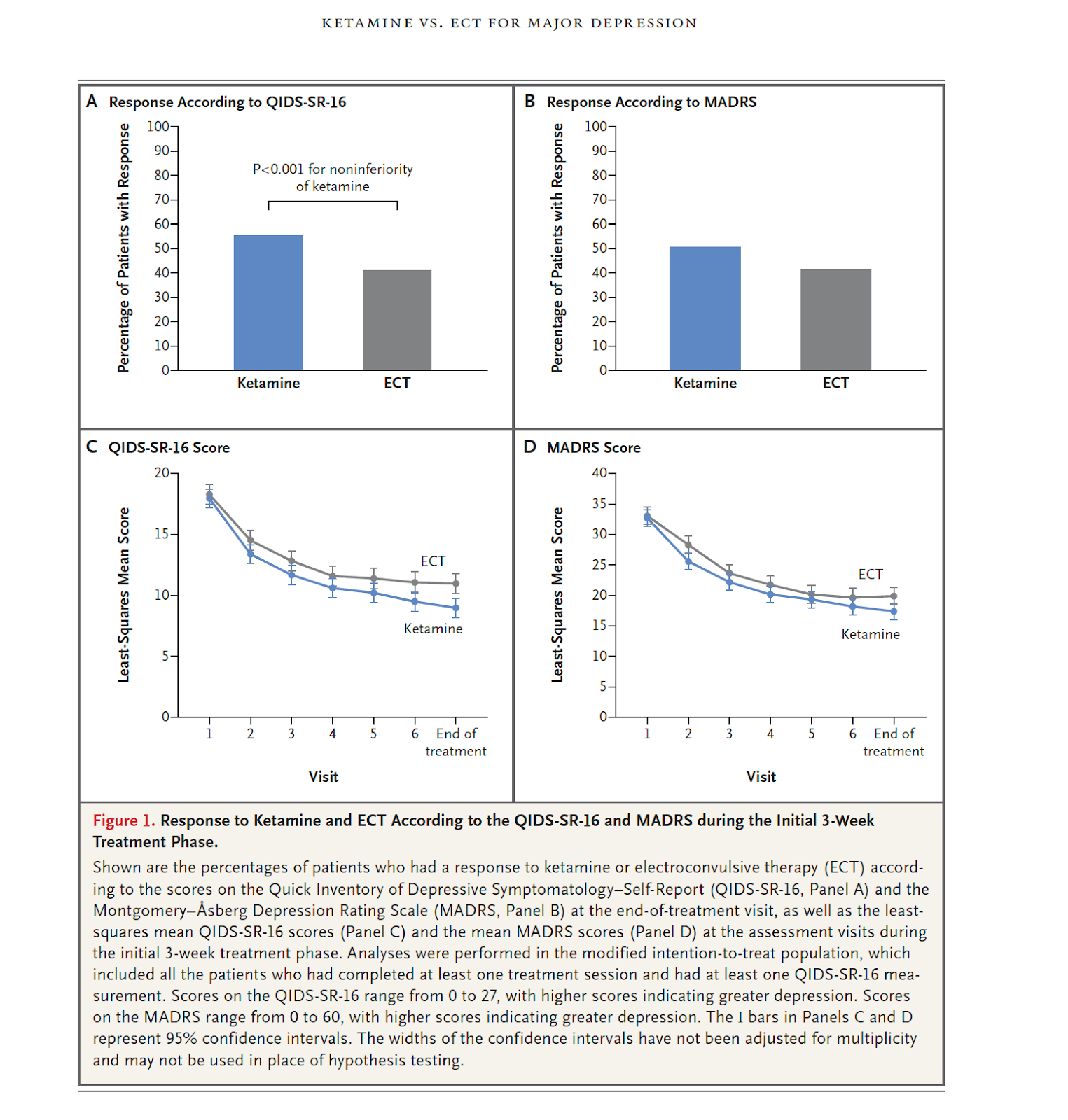Another Review of Ketamine vs ECT: Ignore This One In Cureus
Out on PubMed, is this article:
A Comparison of the Efficacy and Adverse Effects of Ketamine and Electroconvulsive Therapy in the Management of Treatment-Resistant Depression: A Systematic Review.
Cureus. 2024 Mar 5;16(3):e55596. doi: 10.7759/cureus.55596. eCollection 2024 Mar.PMID: 38576655
The abstract is copied below:Ketamine has been repeatedly demonstrated to be an effective treatment in the management of patients with treatment-resistant depression (TRD). An important question is whether it is equally or more effective than the current gold standard of electroconvulsive therapy (ECT), as the adverse effects of ECT can lead to memory loss and neurocognitive deficits. A literature search was conducted for trials that directly compared the efficacy and adverse effects of ketamine and ECT via PubMed and Google Scholar. A total of 56 articles were identified with six included in this review. The studies included differed significantly in their quality and with differing levels of potential for bias. Ketamine has a more immediate effect when compared to ECT, but the antidepressant effects are shorter-lasting. Cognitive deficits were less pronounced in patients undergoing ketamine therapy. Many studies had a small number of participants and varied widely in the type of ECT used. Allocation bias seems likely in nonrandomized studies. Follow-up times were also short in some studies. The existing literature does not provide sufficient evidence to support the usage of ketamine over that of ECT for TRD, as remission rates were significantly higher over extended periods in ECT groups. Cognitive adverse effects were more pronounced in patients undergoing ECT. More high-quality randomized controlled trials (RCTs) directly comparing these two treatment modalities are required before drawing any firm conclusions.Keywords: ect; ketamine; trd; treatment of trd; treatment-resistant depression.
The article is here.
And from the text:
So, I don't want to get sidetracked into being an internet cop, but this article needs to be called out. Although the abstract and conclusions are not unreasonable, please don't be fooled, the review is incomplete and the introduction filled with misinformation.
I believe this is a "least publishable unit," sponsored by the "California Institute of Behavioral Neurosciences and Psychology."
This appears to be an online entity with the goal of getting medical students published:
Again, nothing wrong with that in theory, except we end up with bogus articles written without the necessary expertise. That, along with "open access," makes for a treacherous online environment. Peer review can only do so much, and when that process is compromised, we end up with junk. Not to mention AI...






Comments
Post a Comment